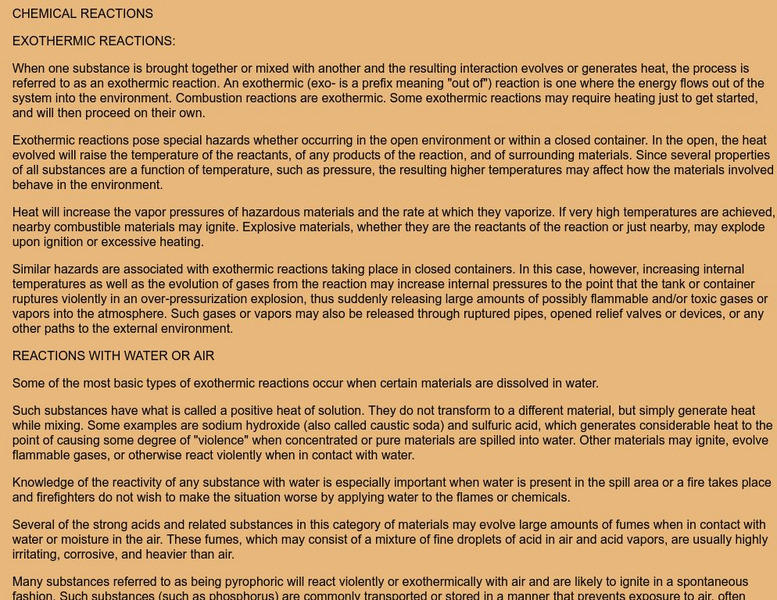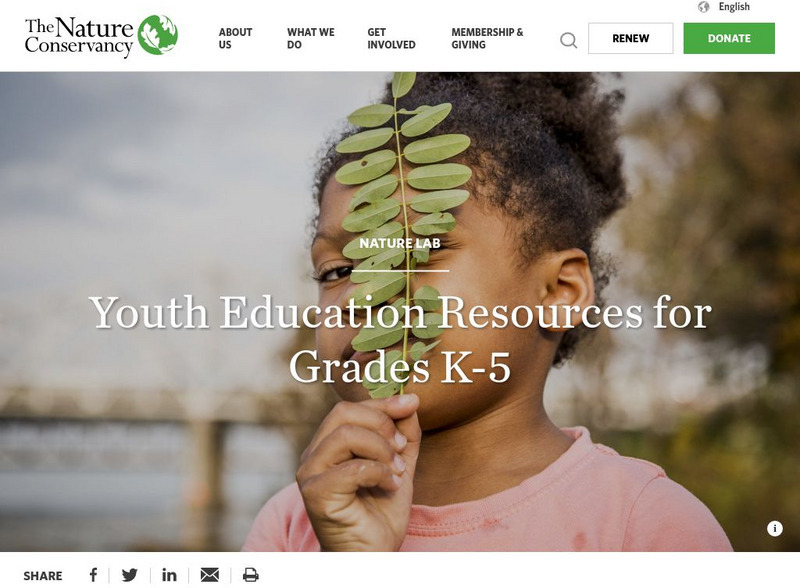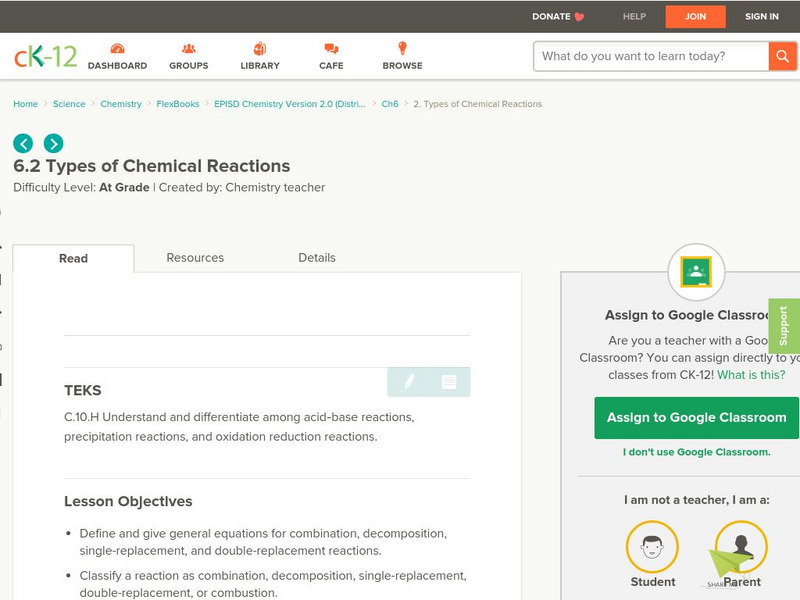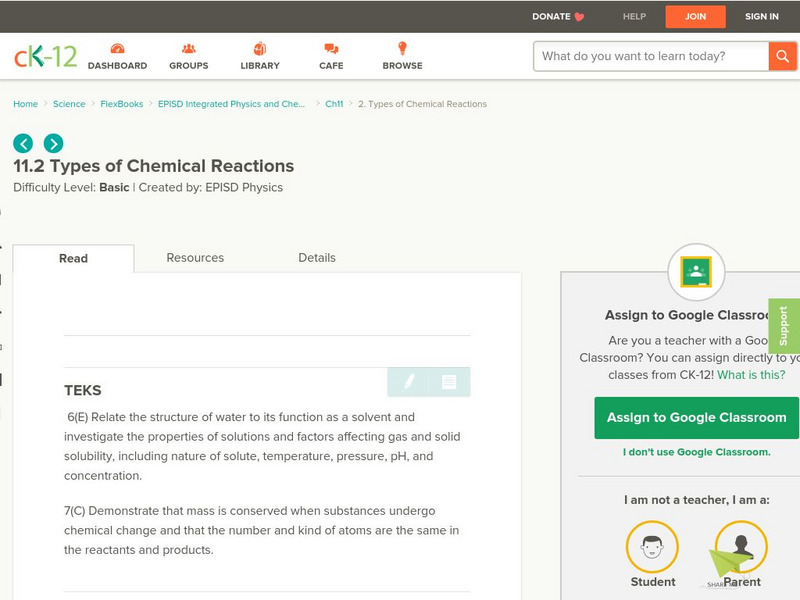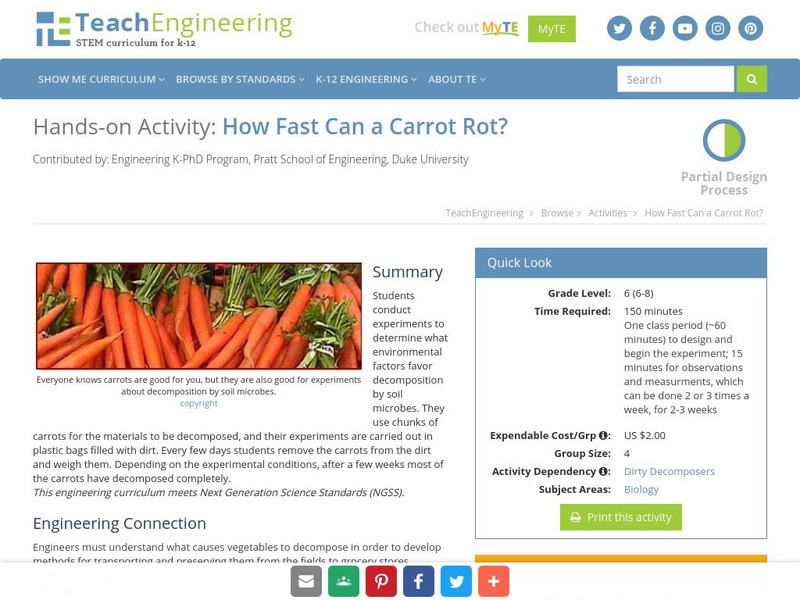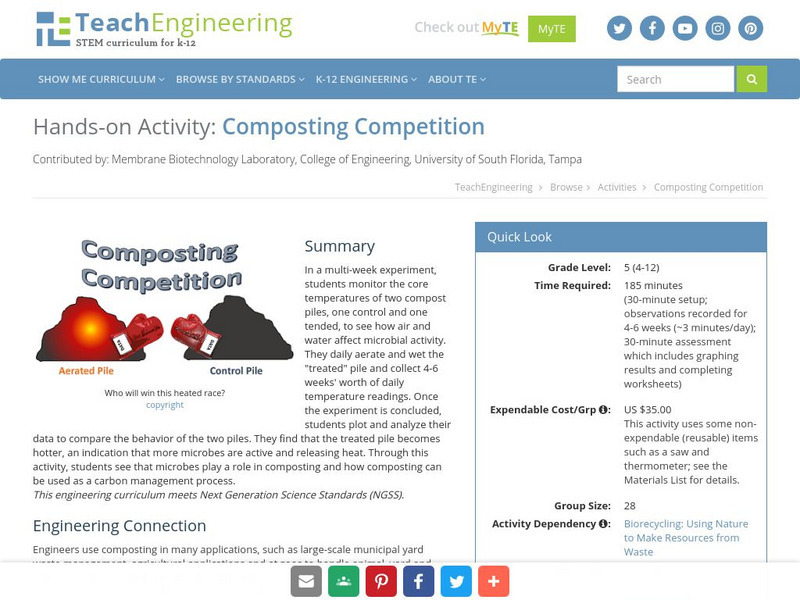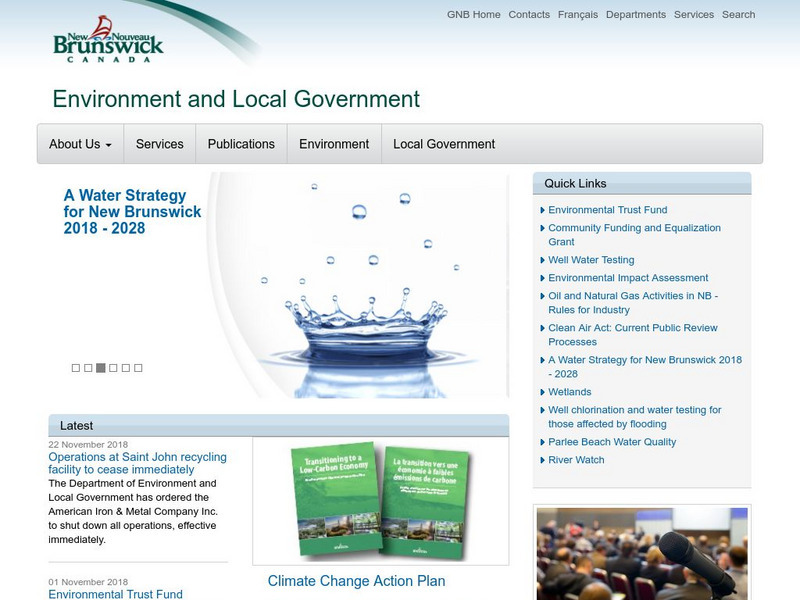Curated OER
Integrals by Partial Fractions
Students integrate integrals by the method of partial fractions. They then decompose fractions into two or more fractions to make them simpler rational expressions so that they can apply the basic integration formulas. Students also...
Curated OER
"Boy Meets Chemistry... and has a Reaction!"
Students identify the four main types of reactions: synthesis, decomposition, single replacement, and double replacement. They explore the four main types of chemical reactions through an analogy of "Boy Meets Girl" and then "act out"...
Curated OER
Decomposing Artifacts
Seventh graders participate in an experiment in which they calculate the time of decomposition of different materials. In groups, they fill bags with different materials and cover them in soil. After six months, they create a line graph...
Curated OER
Litter Garden
Students discuss what man-made and natural materials are visible in litter. Using a sample of litter, they review the concept of decomposition between the two types of materials. They examine the two samples once and a while and record...
Curated OER
Coal Formation
Students create a condition in an aquarium which allows the formation of coal. Students observe changes in decomposition and color of materials present in aquarium before a coal layer appears. Plant "fossil" imprints will be left behind.
Curated OER
Investigating Soil
Fourth graders swap local soil samples with another school and examine the differences. They research soil properties, identify organisms that live in soil, create and maintain a biome of soil decomposition and design a poster to present...
Curated OER
H2O2 Decomposition Lab I
Students conduct an experiment to determine how much hydrogen peroxide (H2O2) is actually in a store-bought solution of H2O2.
Curated OER
Deconstructing, Decomposition and Compost
Students create and tend to an outdoor compost pile. They research about decomposition and composting. They create two activities for their peers to complete.
Curated OER
Decomposition
Students are introduced to the concept of decomposition. They examine decomposition in their school orchard. They write about their findings in a journal.
Curated OER
Decomposers at Work!
Students design and conduct investigations that illustrate the process of decomposition. After a lecture/demo, students simulate the process of soil composting in the classroom. They closely chart the decomposition of their soil.
Curated OER
Watching Waste Rot
Students investigate what types of materials decompose, and at what speeds.
Curated OER
All I Want for Christmas is a Nice, Clean Earth
Students observe properties of items, determine time it takes for organic/inorganic items to decompose, identify differences/similarities between decomposition, identify practical uses in litter/garbage control, & establish reasons...
Curated OER
Back to the Earth
Students conduct an experiment in which they bury four objects (apple, lettuce, plastic and styrofoam) in the ground and come back to observe them a month later. They consider what biodegrades and how it affects our planet.
Student Achievement Partners
Illustrative Mathematics: Addition and Subtraction Fluency Set of Tasks [Pdf]
Learners explore the relationship between addition and subtraction and develop an understanding of decomposing numbers in different ways in this first-grade lesson plan.
Other
Chemical Reax/exothermic Reactions
A wonderfully complete primer on exothermic reactions in the context of chemical spills. Covers Reactions with Air or Water, Combustible Organics, Polymerization Reax, Decomposition, Corrosion, and much much more.
Missouri Botanical Garden
Missouri Botanical Garden: The Taiga Biome
This resource offers a detailed overview of the taiga biome, including its locations, the types of plants and animals that live there, and other interesting facts.
Nature Conservancy
The Nature Conservancy: Gardens Activity Guide: Soil
In this lesson students conduct a soil analysis to understand soil types and explore the relationship between the garden and healthy, fertile soil. Soil is a natural resource that is crucial to life on Earth and when managed properly, it...
CK-12 Foundation
Ck 12: Types of Chemical Reactions
[Free Registration/Login may be required to access all resource tools.] In the following online tutorial students will define and give general equations for combination, decomposition, single-replacement, and double-replacement...
CK-12 Foundation
Ck 12: Types of Chemical Reactions
[Free Registration/Login may be required to access all resource tools.] In this learning module, studnets will classify a chemical reaction as a combination, decomposition, single replacement, double replacement, or combustion reaction....
Australian Museum
Australian Museum: Death: The Last Taboo
Throughout the world, death and the rituals that surround it are steeped in taboos. Explores what happens to us when we die and the different ways we deal with death.
TeachEngineering
Teach Engineering: How Fast Can a Carrot Rot?
Students conduct experiments to determine what environmental factors favor decomposition by soil microbes. They use chunks of carrots for the materials to be decomposed, and their experiments are carried out in plastic bags filled with...
TeachEngineering
Teach Engineering: Composting Competition
In a multi-week experiment, students monitor the core temperatures of two compost piles, one control and one tended, to see how air and water affect microbial activity.
TeachEngineering
Teach Engineering: Dirty Decomposers
Students design and conduct experiments to determine what environmental factors favor decomposition by soil microbes. They use chunks of carrots for the materials to be decomposed, and their experiments are carried out in plastic bags...
Other
New Brunswick Waste Management /"Backyard Magic"
Comprehensive description of the environmental benefits of composting solid waste. Complete directions for composting, detailed description of composting chemistry, suggestions for applications of humus, question and answer page,...





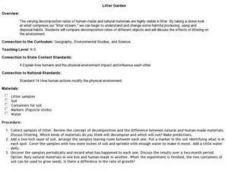

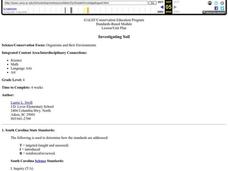

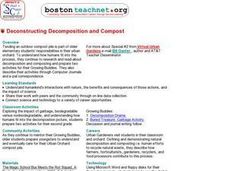




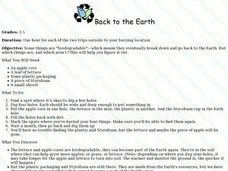
![Illustrative Mathematics: Addition and Subtraction Fluency Set of Tasks [Pdf] Lesson Plan Illustrative Mathematics: Addition and Subtraction Fluency Set of Tasks [Pdf] Lesson Plan](https://d15y2dacu3jp90.cloudfront.net/images/attachment_defaults/resource/large/FPO-knovation.png)
